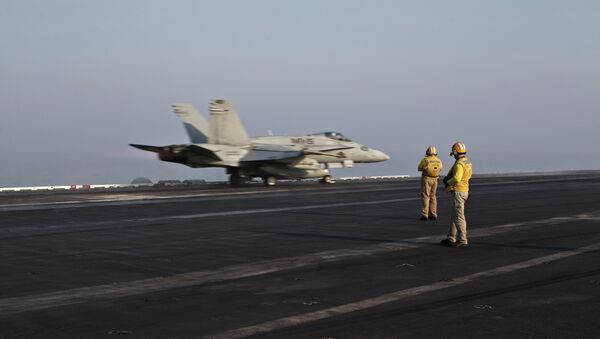"The United States, through several presidential administrations, has repeatedly allowed itself to get sucked into other people's quarrels in the Middle East. These include quarrels in which the United States should not have gotten involved at all, or in which it had no good reason to take the side it was enticed to take," the analyst wrote for the National Interest.
#Saudis bomb food aid in #Yemen, again. As Saudi blockade spurs famine, fishermen, factories,& food are hot targets https://t.co/xUTgUS0VPD
— Jane Novak (@JNovak_Yemen) 11 ноября 2015
The US-led anti-ISIL campaign in Syria and the Saudi-led operation in Yemen, which Washington is tacitly supporting, could serve as prime examples.
"The side on which the Saudi have intervened [in Yemen] – a side that includes al-Qaeda in the Arabian Peninsula (AQAP) – is not one that the United States has any good reason to be identified with. Even if the United States had a good reason to take sides in the Saudis' contest with Iran for regional influence, which it doesn't, the Yemeni war would be a poor place to do so," Pillar observed.
"The withdrawal of Arab air forces makes the US role all the more lonely and conspicuous. Participation of other Western powers already was lukewarm, and the US role will get lonelier still with the promise by the new Trudeau government in Ottawa to end Canadian participation in military operations in Syria," the expert asserted.
Pillar believes that Washington should put more effort into finding a diplomatic solution to the Syrian civil war.
"While engaging in that [multilateral] diplomacy, and in crafting reactions to the ideas and proposals of others, including from Russia, US policy-makers need to be careful not to slide into the habit of adopting the objectives of others just because they may be commonly labeled as 'allies,'" the analyst warned.



